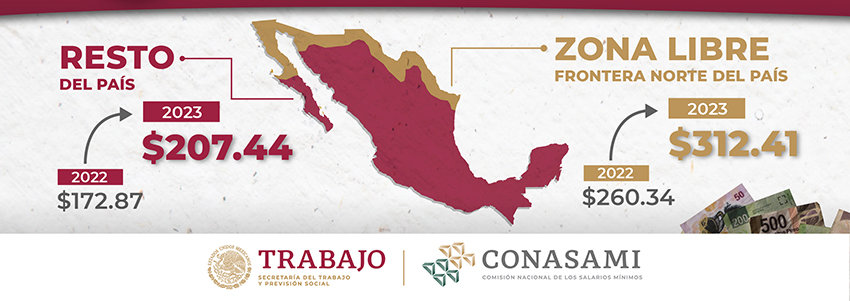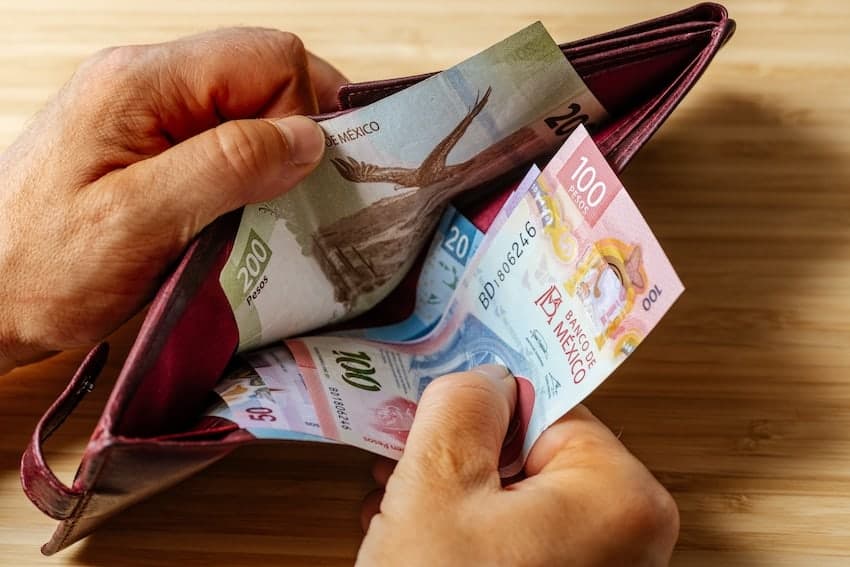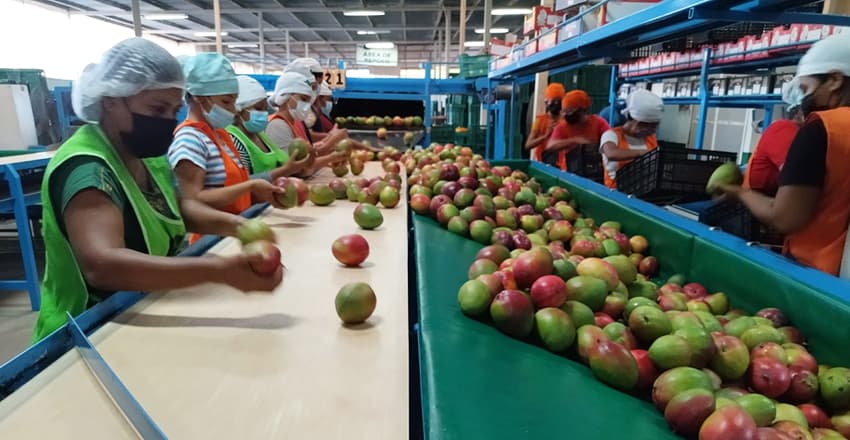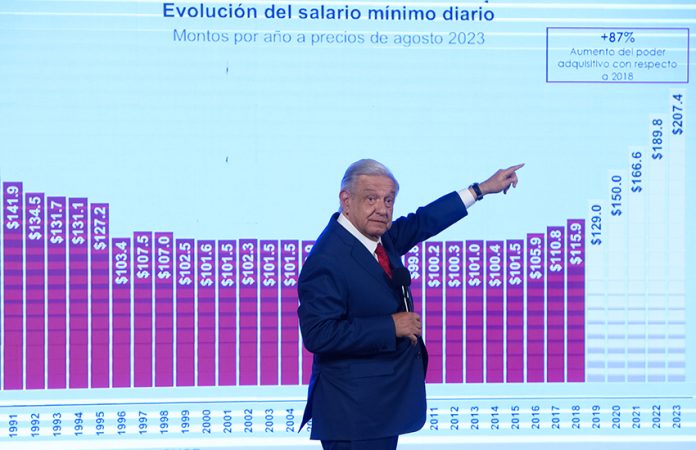Mexico’s minimum wage will increase 20% on Jan. 1 to 248.93 pesos (about US $14.50) per day in most of the country.
President López Obrador announced the increase at his morning press conference on Friday.
“This is historic because it means we’re going to achieve what we offered at the beginning of our government – to double the minimum wage in real terms,” he said.
“… What better way to commemorate five years of our government,” said López Obrador, who was sworn in as president on Dec. 1, 2018.
Unions had pushed for a 25% hike to the current minimum wage of 207.44 pesos (about US $12) per day, while the Mexican Employers Federation proposed a 12.8% increase.
The 20% increase, which was also announced by the National Minimum Wage Commission (Conasami), will also apply to the minimum wage in the northern border free zone, lifting the daily rate there from 312.41 pesos (about US $18.20) to 374.89 pesos (about US $21.80).

Based on the new rates, minimum monthly wages will be 7,467 pesos (about US $435) in most of the country and 11,246 pesos (about US $655) in the north.
As of Jan. 1, the minimum daily wage will have increased 182% from 88.15 pesos when López Obrador was sworn in.
The government announced shortly after it took office that a higher minimum wage would apply in 43 northern border municipalities across six states.
The Organization for Economic Co-operation and Development (OECD) reported earlier this year that the minimum wage in Mexico had increased by more than that in any other OECD country between December 2020 and May 2023.

Conasami said in a statement that the new minimum wage is “1.73 times the poverty line for income” determined by the National Council for the Evaluation of Social Development Policy (Coneval).
It said that an estimated 8.9 million working people will directly benefit from the increase.
The current government’s policy of increasing the minimum wage “broke with the old policy of salary contention that allowed the minimum wage to lose 75% of its purchasing power between 1976 and 1999,” Conasami said.
Between 2000 and 2017, minimum wage increases were “almost equal to inflation, to the detriment of the country’s working people and their families,” the council added.
“In addition to making progress with the recovery of the purchasing power of working people, the [government’s] wage policy has given a boost to the internal market and reduced income inequality by gender and poverty,” Conasami said.
On social media on Thursday, López Obrador said that poverty reduction was “the most important achievement” of his government.

“No government had been able to reduce inequality like we’re doing,” he wrote.
Data published by Coneval in August showed that the number of Mexicans living in poverty declined by 8.9 million between 2020 and 2022, falling to 46.8 million in the latter year.
Manuel Fuentes, an expert in labor law, said he didn’t expect the upcoming 20% increase to have an overly adverse impact on the finances of small businesses. He also said that “it has been proven” that minimum wage increases don’t lead to higher inflation, which has trended downwards this year after peaking at close to 9% in 2022.
Despite the increases during the current government, Mexico’s daily minimum wage remains low by international standards, and is nowhere near the top in Latin America.
Rodolfo Ramos, a strategist at investment banking firm Bradesco BBI, said that minimum wage policy in future years “will depend to a great extent on the outcome of the [2024 presidential] election.”
However, “regardless of who wins, we expect to continue to see large real increases to the minimum wage,” he added.
With reports from El Universal, El País and Infobae
